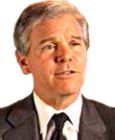Bipolar Disorder
Wholesale Sedation of Young Children: Medically, Morally Indefensible
Mass Medical Board's Inaction Incomprehensible re Psychiatrist's Behavior
Posted April 4, 2010
(first appeared in the Patriot Ledger, March 27, 2010)
The twin murder trials of the parents of Rebecca Riley, who died at age four of an overdose of the psychiatric drug, clonidine, have cast a spotlight on the beliefs and practices of the doctor who prescribed the drug. Kayoko Kifuji was granted immunity in both trials in exchange for her cooperation for testifying. Reactions from jurors, comments online and letters to the editor based on newspaper accounts of Kifuji’s testimony range from confusion, shock, and outrage directed at the doctor’s role in the tragedy.
Kifuji did go before a grand jury and was not indicted, avoiding any criminal prosecution for her actions. Massachusetts’ medical licensing board, the Board of Registration in Medicine (BRM) initially suspended Kifuji’s license to practice medicine. But after conducting an investigation the BRM fully restored Kifuji’s privileges. She is now back at Tufts Medical Center practicing child psychiatry without any restrictions, penalties or supervision.
Kifuji did not literally place the extra lethal doses of clonidine in Rebecca’s mouth which may explain why she was not criminally charged. Ironically, from testimony at the father’s trial, neither did Michael Riley. Still the jury found him guilty of murder. What’s more disturbing is the BRM’s decision to take no further actions and allow Kifuji unfettered practice.
The broad facts of the case are well known. Kifuji also treated Rebecca’s older brother and sister for pediatric bipolar disorder with a combination of psychiatric drugs. Rebecca was 28 months old when Kifuji first prescribed her clonidine, a drug approved to treat high blood pressure but also used in child psychiatry for ADHD. By age three she was on high doses of clonidine, but additionally Depakote, an anticonvulsant and Seroquel, an antipsychotic. All three can be prescribed “off-label” for the treatment of bipolar disorder, the diagnosis Rebecca received at age three from Kifuji.
The testimonies offered at the grand jury and BRM hearings were kept secret so the Riley trials offer the public the first details of Kifuji’s management of the Riley children. Here are some of the facts extracted from the trial transcripts:
• Kifuji’s diagnoses were based entirely on reports coming from the children’s mother, Carolyn, herself, diagnosed with mental illness and at times heavily medicated to the point of falling asleep in Kifuji’s office.
• Kifuji essentially ignored late warnings from a school nurse about possible sedating over dosages to Rebecca and from a mental health counselor for Rebecca whom the mother fired after the counselor alerted the local child protective service agency about potential child abuse.
• Kifuji believed testimony from the children as young as three regarding “hallucinations” about monsters to support the bipolar diagnosis while discounting any other information reported by the children as “unreliable”
• Kifuji repeatedly allowed, without drawing any effective limits, Carolyn Riley to increase the doses of clonidine she gave her children. For her last month of life, Kifuji overall prescribed 835 pills to Rebecca.
• Rebecca at age three, gained nine pounds in two months on the first antipsychotic drug, Zyprexa, she was prescribed by Kifuji
• Kifuji waited fifteen months into treatment before recommending counseling/psychotherapy for Rebecca. There is no mention of ever recommending any parenting or family therapy for the parents. Kifuji’s personal efforts at counseling the family appear limited to telling the children not to fight in her office.
• Kifuji continues to insist her diagnosis was correct even when it was pointed out that the children’s symptoms literally disappeared overnight when the mother was out of the home for four days and the father was left in charge of the children. Kaitlynne, Rebecca’s older sister by two years, in a foster care home since her sister’s death, is reported to be symptom and drug free carrying a diagnosis of Post-Traumatic Stress (which implies she was emotionally damaged by her experiences).
The Massachusett’s BRM in allowing Kifuji to practice again without any penalties or restrictions has essentially told doctors and the public that this kind of management of children’s behavior problems is “within the standards of current medical practice” – a phrase that comes up both in licensing and malpractice cases. BRM hearings are closed legal proceedings with witnesses for and against the doctor.
The following two paragraphs in brackets were cut in the op-ed that appeared in the Patriot Ledger because of space considerations:
[In this case it is telling that Janet Wozniak, a prominent child psychiatrist who works at the Massachusetts General’s Pediatric Psychopharmacology Clinic, appeared at the hearing, no doubt to support the bipolar diagnosis in children as young as two. The clinic and it chief, Joseph Biederman, have come under national criticism both for its vigorous promotion of the pediatric bipolar diagnosis and conflict of interest charges with pharmaceutical industry.
So in an indirect way any official criticism of Dr. Kifuji’s management by the BRM would also have been an indictment of Harvard’s preferred way of managing very difficult children.]
Instead, the BRM elected to allow Kifuji to carry on and has sent an alternative message to the community and because of Harvard’s national influence, the entire country – that the psychiatric child abuse of children through drugs will be tolerated in the state of Massachusetts.
A recent survey has reported a doubling in five years of the number of children between ages two and five receiving anti-psychotic medications like Zyprexa and Seroquel. Many are likely receiving the kind of care the Riley children experienced. It is very difficult to address the behavior and emotional problems of very young indigent children. Non-drug resources are often meager or unavailable. Follow through by overwhelmed parents is inconsistent. Nevertheless, the wholesale sedation of young children condoned and supported by mainstream psychiatric practice is both medically and morally indefensible. Unfortunately it appears more Rebecca Rileys will have to die before these practices change.
Post-Script-After this op-ed was written the Boston Globe reported the following:
After the verdict, Plymouth District Attorney Timothy J. Cruz said he believes the psychiatrist, Dr. Kayoko Kifuji, who prescribed the drugs to Rebecca, should not be allowed to practice medicine in Massachusetts, and he will ask the Board of Registration to reopen an investigation into her medical care.
"Dr. Kifuji is unfit to have a medical license," he said after the verdict was announced. "If what Dr. Kifuji did in this case is the acceptable standard of care for children in Massachusetts, then there is something very wrong in this state."




